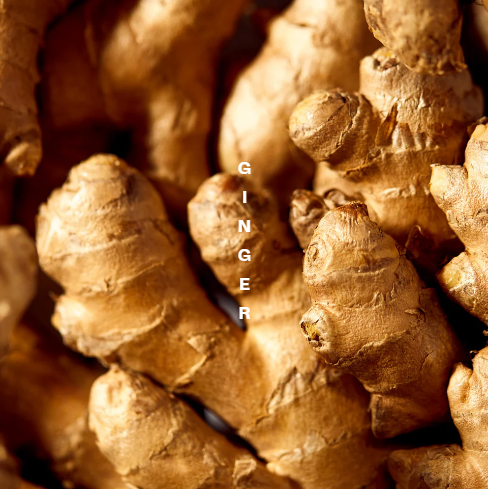
Ginger / Jiang
More than a delightful, warming spice, Ginger is clinically proven to ease menstrual cramps as well as reduce nausea & bloating, and has anti-inflammatory & antimicrobial properties.
Helps with:
Immunity
Nausea
Cramps
Heavy Bleeding
How it heals
In Chinese Medicine, Ginger is a key herb for warming the body, expelling cold, and resolving toxicity. It’s great for treating ailments ranging from the common cold to the stomach flu.
In Western medicine, Ginger is known to reduce nausea, diarrhea, and bloating while increasing digestion. Ginger also has antibacterial, antiviral, anti-fungal, anti-inflammatory, and anticoagulant properties, and it is proven to reduce pain and fever.
Fun Fact: Ginger is a rhizome (an underground stem), not a root. You can grow ginger in your own garden by planting rhizomes found at the grocery store.

What the research says
Ginger has anti-inflammatory and analgesic effects by
producing inhibitory effects on prostaglandin synthesis.
In a study comparing the effects of ginger, mefenamic
acid, and ibuprofen on pain in women with primary
dysmenorrhea, ginger was as effective as mefenamic
acid and ibuprofen (NSAIDs) in relieving dysmenorrhea
related pain with no significant side effects.
Read ArticleA meta-analysis of 7 randomized clinical trials provide
evidence for the effectiveness of 750-2000mg of ginger
powder during the first 3-4 days of the menstrual cycle
for primary dysmenorrhea symptoms.
Read Article